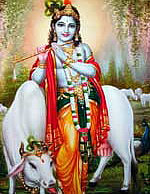Anna, an Australian man of India descent recently called to see if I would be able to perform his wedding. He wanted a specific kind of priest, and to use his words, he was not happy with the usual “run of the mill Hindu priest.” So he wanted to know my religious orientation. He had been interviewing various priests. In the course of his interview with me he told me that he was not very religious, and so I told him, “good, neither am I.” That stopped him cold. “What do you mean? You are a priest, you have to be religious!” I apologized, but restated my point, “I am not particularly religious. I used to be, but not anymore. I am more spiritual now.” This last statement, “I am more spiritual now” caught his ear. “Ah! I like that, you are my kind of priest. Please perform my marriage.”
To be religious is a stage of life. I went through that stage and I can tell you that it has a lot of offer. However, you eventually reach a point where religion falls away. Religion unavoidably leads to a crisis of faith. Anna, I remember walking done a country road in the dead of winter in West Virginia. It was late in the afternoon and getting cold and dark. I felt miserable, not because of the weather, but because my marriage was coming apart and for the first time I realized that nothing could stop it. I had tried and tried. Divorce was the worst thing that could happen, or so I thought at the time.
I remember praying, “Why me God? I have become your devotee. I chant your names everyday. I go to the temple. I bow down to You and I follow all the rules. I am a religious person.” Terrible doubts were entering my mind, “This should not be happening to me. I had done everything right. Why was God allowing this to happen”? This was an important moment for me. I was experiencing a crisis of faith. I questioned the value of my commitment to the religious life. I have had similar periods of questioning at other times in my life and I will write of them in due course, but each time I go through one of these periods, little by little, my religious nature gets stripped away.
The writing of my Ph.D was the most important event in my life. It was also the hardest thing that I have ever done. Anna, I did not undertake my dissertation to improve my academic position or to get a job, I did it solely as a spiritual quest. The official topic dealt with how traditional religious cultures (in this case Hinduism) change under the influence of modernity, (in this case 19th century European influence), hence the title, “Hindu Encounter with Modernity,” but the real essence of the work was how to survive a crisis of faith. How to pick up the pieces of a life when religion no longer works. To this day I do not think I can provide anyone with a set formula of how to do survive a religious crisis. Each case is unique, but I can say that as a result of my studies and soul searching I did find my spiritual grounding and have benefited ever since. My crisis of religious faith has landed me on the shores of spirituality. But without that dissertation and all the hard work that it entailed–the readings and field research–I may never have reached this shore. I have learned that religion can be the vehicle of spirituality, but that it should never be taken as spirituality.
Encounter with Modernity,” but the real essence of the work was how to survive a crisis of faith. How to pick up the pieces of a life when religion no longer works. To this day I do not think I can provide anyone with a set formula of how to do survive a religious crisis. Each case is unique, but I can say that as a result of my studies and soul searching I did find my spiritual grounding and have benefited ever since. My crisis of religious faith has landed me on the shores of spirituality. But without that dissertation and all the hard work that it entailed–the readings and field research–I may never have reached this shore. I have learned that religion can be the vehicle of spirituality, but that it should never be taken as spirituality.
